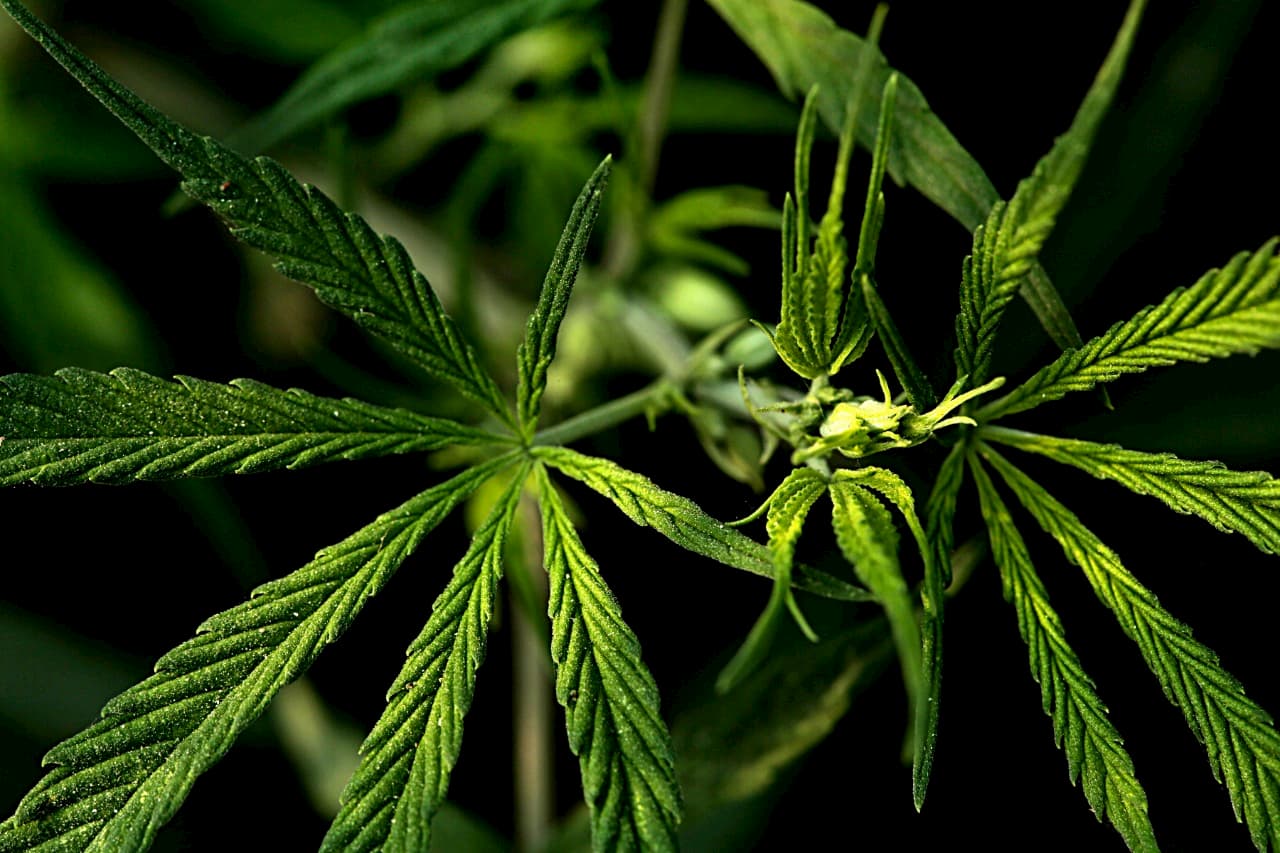Arizona has strict laws when it comes to impaired driving, including driving under the influence of marijuana, commonly referred to as a Marijuana DUI or Driving While High. Even though medical and recreational cannabis is legal in Arizona for adults, driving under its influence remains a serious criminal offense under Arizona Revised Statutes §28-1381.
The starting point for a driving while high case is A.R.S. 28-1381. The statute says that it is illegal to drive:
(a) while under the influence of drugs or alcohol if you are impaired to the slightest degree, or
(b) if there is any one of hundreds of drugs or their metabolites in your system. The question is what these provisions mean.
A Marijuana DUI occurs when a driver is found to be impaired by marijuana to the slightest degree while operating a motor vehicle. Unlike alcohol DUIs, where a legal limit (BAC of 0.08%) is established, marijuana-related impairment is harder to quantify. Arizona law focuses on the driver’s actual impairment rather than a specific level of THC in the bloodstream.
Arizona’s legalization of recreational marijuana through Proposition 207 in 2020 has changed the landscape of cannabis use in the state. However, it remains illegal to drive while impaired by marijuana. Understanding the nuances of Arizona’s marijuana DUI laws is essential for all drivers.
Proposition 207, also known as the Smart and Safe Arizona Act, permits adults aged 21 and over to possess and use up to one ounce of marijuana, with no more than five grams in concentrated form. Additionally, individuals may cultivate up to six cannabis plants at their primary residence. However, public consumption of marijuana remains prohibited, and driving under the influence of marijuana is still unlawful.
Arizona Revised Statutes § 28-1381 makes it illegal to operate a vehicle while under the influence of any drug, including marijuana, if it impairs the driver to the slightest degree. This means that even minimal impairment can lead to a DUI charge.
Holding a medical marijuana card does not exempt individuals from DUI laws. Driving while impaired by marijuana, regardless of medical authorization, is illegal.
The dictionary defines “metabolite” as any substance produced by or involved with metabolism. For purposes of the DUI laws, it involves primarily the presence of one or another form of tetrahydrocannabinol (THC) in a person’s body, as shown by a blood, saliva or urine test. Reading the statute in a vacuum, you’d conclude that under the statute, the presence of THC would automatically signal a violation of the DUI statute. In fact, the Arizona Supreme Court has significantly limited that portion of the law.
There are problems convicting a person of DUI based solely on the presence of a metabolite of marijuana in their body. First, some metabolites do not have the capacity to cause impairment. Second, some metabolites remain in the body for weeks, and even months, long after the possibility of impairment has passed. And since thousands of people use marijuana legally under the Medical Marijuana Act, a literal interpretation of the law would mean that those people (as wells as anyone else who uses marijuana) are effectively prohibited from driving a motor vehicle.
The interpretation of the “metabolite” provision of A.R.S. 28-1381 reached the Supreme Court of Arizona in 2014. The court held that the mere presence of a metabolite of marijuana, absent evidence of impairment, is insufficient to sustain a DUI charge. As a result, the issue in a marijuana DUI case becomes one of impairment. And the question is what that term means.
Generally speaking, in a most DUIs, the State must prove your guilt, beyond a reasonable doubt. However, in a driving while high case, the burden of proof often shifts to the criminal defendant.
Those accused of driving while high that have a medical marijuana card (AMMA Card) often carry the burden of proof. If the State alleges that you are operating a motor vehicle while impaired by marijuana they must prove that the active THC impaired your ability to drive to “at least the slightest degree.” However, when the State alleges a violation of ARS 28-1381A3, in a marijuana case, the defendant has the burden of proving that the THC was “in a concentration insufficient to cause impairment.” This additional requirement demands the assistance of an experienced marijuana DUI lawyer.
After the Harris case, it became clear that to convict someone of driving while high, the prosecutor must provide evidence that the person was under the influence of marijuana, and that he or she was impaired. Typically, the evidence (other than the results of a chemical test) will come from the testimony of a police officer. The officer may say that your eyes were bloodshot, that you were unable to follow a light with your eyes, that you did not follow instructions, that your coordination was poor, or one of many other observations.

Most police officers, however, have little or no expertise in evaluating whether a person is impaired by marijuana, or any other drug for that matter. Even those who claim to be Drug Recognition Experts (DRE) often have little training in the area. A Phoenix marijuana DUI lawyer with experience defending those charged after driving while high, can often lessen the impact of such testimony, either through cross-examination or by countering with an expert for the defense.
At Feldman & Royle, our Phoenix marijuana attorneys understand what needs to be done and have significant experience representing those who have been charged with DUI after driving while high.
Facing marijuana DUI charges in Phoenix can feel overwhelming—but a charge is not the same as a conviction. Arizona has strict laws regarding drug-related DUI offenses, but these cases often involve complex science, subjective interpretation, and legal nuance. At Feldman & Royle, we understand how to challenge marijuana DUI allegations strategically and effectively.
If you’ve been accused of driving under the influence of marijuana, knowing your legal options is critical. Below are some of the most effective defenses our experienced Phoenix DUI attorneys may use in your case.
Unlike alcohol, marijuana doesn’t have a universally agreed-upon legal limit. Arizona law makes it illegal to drive while “impaired to the slightest degree,” but this is open to interpretation. You may test positive for THC long after the effects have worn off.
Defense Strategy: We may argue that although marijuana metabolites were present in your system, they did not impact your driving ability at the time of the arrest. Scientific studies support the claim that THC can linger in the body for days or even weeks after use.
Blood testing is the standard method for detecting THC levels in Arizona DUI cases. However, errors can occur in both the collection and analysis stages.
Defense Strategy: Our team may challenge the chain of custody, improper blood draw procedures, or the calibration and maintenance of testing equipment. Even minor missteps can compromise the validity of the test results.
Officers must have a legal reason to stop your vehicle, such as a traffic violation or erratic driving.
Defense Strategy: If the officer lacked probable cause, any evidence obtained after the stop—such as field sobriety tests or blood results—may be inadmissible in court. We scrutinize dashcam footage, police reports, and dispatch logs to identify constitutional violations.
Field sobriety tests (FSTs), such as the one-leg stand or walk-and-turn, are often used to establish impairment. But these tests are subjective and were originally designed to detect alcohol intoxication—not marijuana impairment.
Defense Strategy: We may argue that your performance on FSTs was affected by factors like fatigue, nervousness, or physical limitations, rather than impairment by marijuana.
Arizona voters legalized medical marijuana under the Arizona Medical Marijuana Act (AMMA). This law offers certain protections for patients who are registered cardholders.
Defense Strategy: If you are a valid medical marijuana cardholder, we may argue that the presence of THC in your system does not equate to impairment. The prosecution must still prove that your ability to operate a vehicle was affected.
An officer’s observations—such as red eyes, odor of marijuana, or slow speech—can be highly subjective and open to interpretation.
Defense Strategy: These signs could result from allergies, fatigue, or other medical conditions. We challenge the credibility of the officer’s testimony and look for inconsistencies in their report.
The cornerstone of criminal law is that the prosecution must prove guilt beyond a reasonable doubt. This applies in marijuana DUI cases as well.
Defense Strategy: If the state’s case relies on weak scientific evidence, conflicting witness statements, or questionable observations, we work to raise doubt in the minds of jurors. Doubt equals acquittal.
A first-time marijuana DUI offense in Arizona is typically classified as a Class 1 misdemeanor. Penalties may include:
Repeat offenses or aggravating factors can lead to more severe penalties, including longer jail time, higher fines, and extended license suspension.
If you were charged with driving while high, do not assume that your fate is sealed. Doing nothing or pleading guilty on your own is a mistake. While you may believe a conviction is a foregone conclusion, you could well be wrong. Indeed, without having your case reviewed by an experienced Phoenix criminal defense lawyer, you may be missing possible defenses and holes in the prosecution’s case.
At Feldman & Royle, our Phoenix marijuana lawyer understands what needs to be done, and we will fight to make sure your rights are protected. Contact us to schedule a free consultation.

No tags assigned to this post.